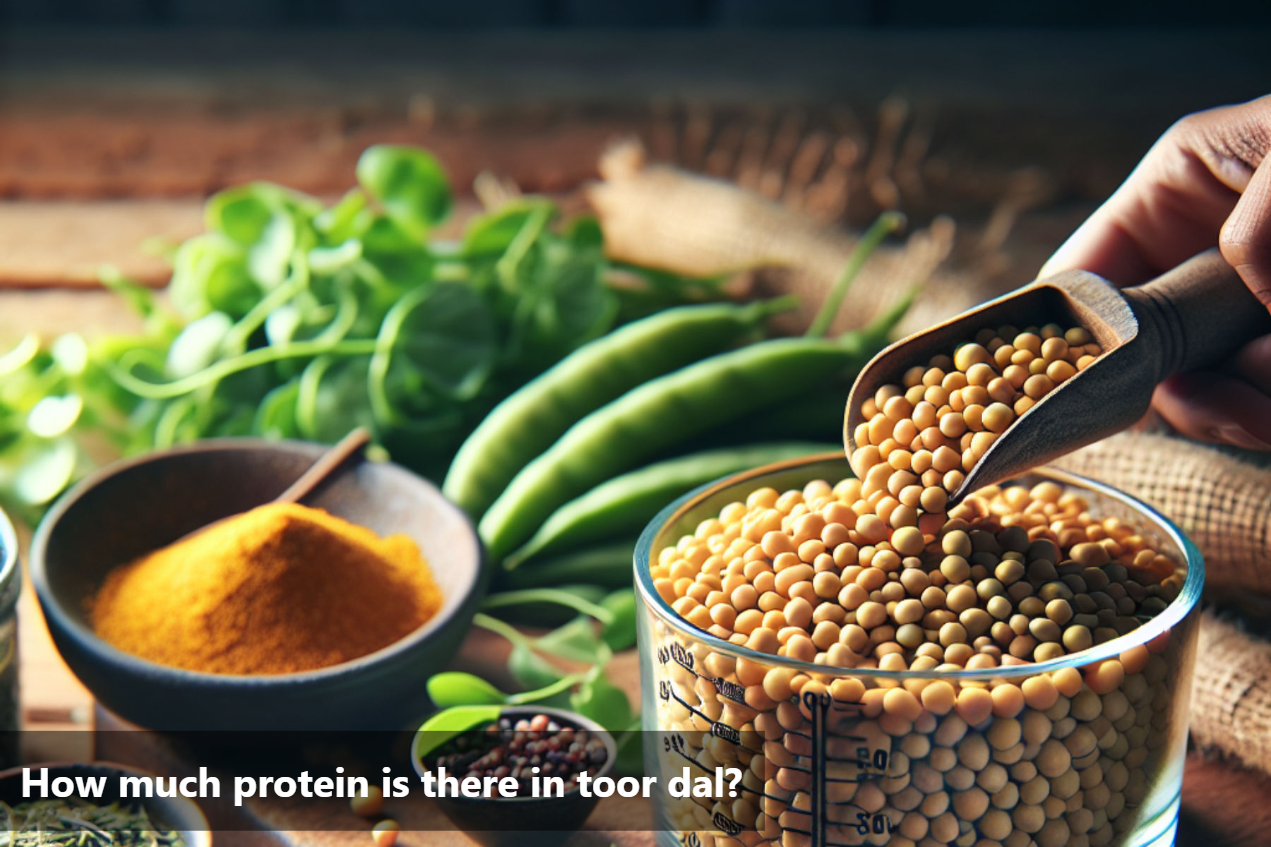
How much protein is there in toor dal?
Toor dal, also known as pigeon pea, is a commonly used lentil in Indian cuisine. It is not only delicious but also packs a powerful nutritional punch. One of the key highlights of toor dal is its high protein content, making it an essential component of a balanced diet. Protein is crucial for various bodily functions, including muscle repair, growth, and overall health.
In every 100 grams of cooked toor dal, you can find a significant amount of protein, making it a preferred choice for individuals looking to increase their protein intake. This nutrient-dense legume is particularly favored by vegetarians and those following plant-based diets due to its rich protein profile.
Including toor dal in your meals can help you meet your daily protein requirements while enjoying a delicious and versatile ingredient. Whether you use it in dals, curries, or soups, toor dal offers a range of culinary possibilities while providing essential nutrients like protein.

Nutritional Profile of Toor Dal
Name |
Calculated per 100 g serving size |
|---|---|
Protein |
22.86 g |
Carbohydrates |
62.86 g |
Fat |
1.43 g |
Calcium |
57 mg |
Fibre, total dietary |
17.1 g |
Sodium |
86 mg |
Iron |
3.09 mg |
Sugars |
2.86 g |
Energy |
343 kcal |
Incorporate Toor Daal in your diet
1. Classic Toor Dal
Ingredients:
1 cup toor dal
3 cups water
1 medium onion, finely chopped
2 medium tomatoes, chopped
2 green chilies, slit
2 cloves garlic, minced
1-inch ginger, grated
2 tablespoons ghee or oil
Instructions:
Rinse and soak dal for 30 mins.
Cook dal with water and turmeric for 3-4 whistles.
Heat ghee/oil, add mustard and cumin seeds.
Add garlic, ginger, green chilies, and sauté.
Add onions, sauté until golden.
Add tomatoes, cook until soft.
Mix cooked dal, add salt, simmer for 5-10 mins.
Garnish with coriander leaves.
2. Toor Dal Tadka
Ingredients:
1 cup toor dal
3 cups water
1 medium onion, chopped
2 medium tomatoes, chopped
2 green chilies, slit
Fresh coriander leaves for garnish
Instructions:
Rinse and soak dal for 30 mins.
Cook dal with water and turmeric for 3-4 whistles.
Heat oil/ghee, add mustard and cumin seeds.
Add garlic, ginger, green chilies, and sauté.
Add onions, sauté until golden.
Add tomatoes, cook until soft.
Mix cooked dal, add red chili powder, garam masala, and salt.
Simmer for 5-10 mins. Garnish with coriander leaves.
3. Toor Dal with Spinach
Ingredients:
1 cup toor dal
3 cups water
2 cups spinach, chopped
1 medium onion, chopped
2 medium tomatoes, chopped
2 green chilies, slit
Fresh coriander leaves for garnish
Instructions:
Rinse and soak dal for 30 mins.
Cook dal with water and turmeric for 3-4 whistles.
Heat oil/ghee, add mustard and cumin seeds.
Add garlic, ginger, green chilies, and sauté.
Add onions, sauté until golden.
Add tomatoes, cook until soft.
Mix cooked dal, add spinach, and salt. Cook until spinach is wilted.
Simmer for 5-10 mins. Garnish with coriander leaves.
Cooking Toor Dal and Protein Retention
To maximize protein retention while cooking toor dal, it's crucial to understand how different cooking methods can affect its protein content. When toor dal is cooked, especially in boiling water, some protein can leach out into the water. Therefore, choosing cooking methods that minimize protein loss is key to retaining its nutritional value.
One effective way to preserve protein in cooked toor dal is to opt for methods like pressure cooking or steaming. These cooking techniques require less water compared to boiling, which helps in retaining more protein within the dal itself. Additionally, avoiding overcooking and prolonged exposure to high heat can further help in maintaining the protein content.
Furthermore, soaking the toor dal before cooking can aid in reducing the cooking time, thus limiting the loss of protein during the cooking process. Adding a pinch of turmeric while cooking not only enhances the flavor but also helps in preserving the protein.
Incorporating a variety of spices and herbs can also elevate the taste of cooked toor dal while ensuring that the protein content remains intact. Experimenting with different flavor profiles can make consuming protein-rich toor dal more enjoyable and beneficial for overall health.

Toor Dal: A Rich Source of Protein
Toor dal is not only a staple in Indian cuisine but also a powerhouse of nutrition, particularly rich in protein. Cooked toor dal contains an impressive amount of protein per 100g, making it a vital component for individuals following vegetarian or plant-based diets. This plant-based protein source not only contributes to muscle growth and repair but also supports overall health and well-being.
It is crucial to highlight the significance of toor dal as a protein-rich food source. By incorporating toor dal into your diet, you are not only meeting your protein requirements but also reaping the benefits of its other essential nutrients. Whether consumed as a comforting dal curry, savory lentil soup, or spicy dal tadka, toor dal stands out as a versatile ingredient that can enhance both the taste and nutritional value of your meals.
Incorporating toor dal into your regular diet can be a simple yet effective way to boost your protein intake, supporting your health and providing a delicious addition to your culinary repertoire.
This Blog post is an initiative by Lo! Foods, to provide accurate and Nutritionist / Doctor approved information related to Health. Lo! Foods is India's leading brand for Everyday Functional Foods. Foods designed for specific Health conditions or Needs. Lo! Foods also runs India's largest range of Low Carb Healthy Cloud Kitchens, under the brand names of Lo!, ProteinChef, ATH (All Things Healthy) and DiabeSmart.















Leave a comment
Your email address will not be published.